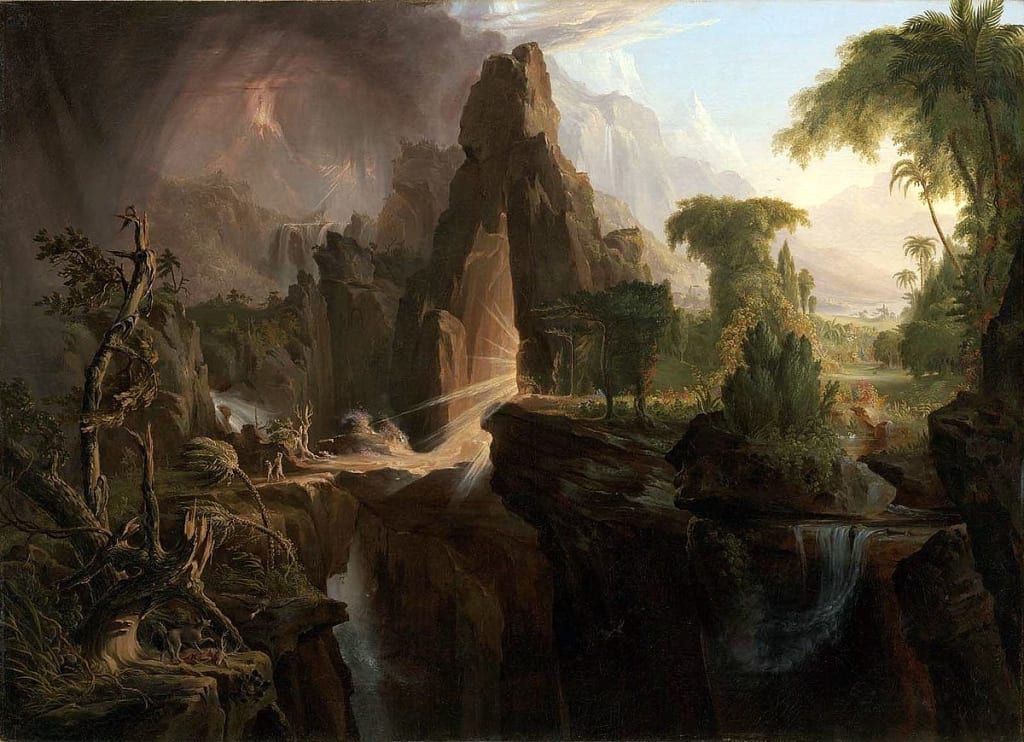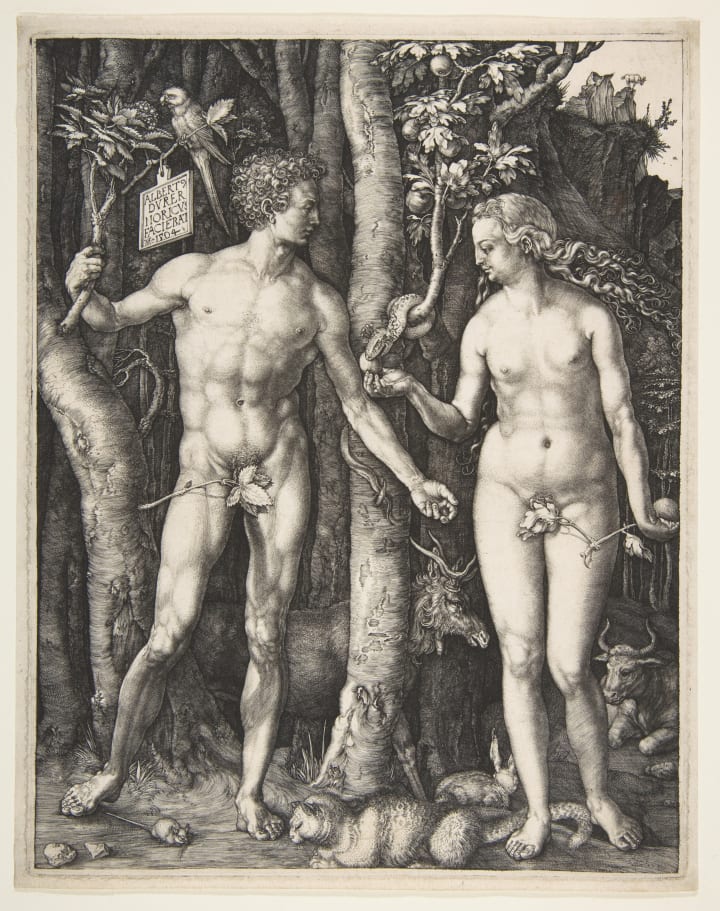An Introduction to the Biblical World
Genesis 1-3

The beginning of the Bible coincidentally starts with the beginning of all creation which is portrayed in two separate accounts that differ in construction, theology, style, and illustration. Surprisingly, Genesis 2–3 is the earliest of the two accounts possibly written as late as 1000 B.C. Confirming this is that Genesis 2–3 holds themes and ideas found in many creation myths from the surrounding regions of the fertile crescent (i.e. humans formed from the earth, humans’ relation to the divine, etc..). Genesis 1 on the other hand has an ordered and simplified construction and was written around 600–500 B.C.
In Genesis 1, God is depicted as what He is usually imagined as–a far-off entity, overlooking his creation. However, the construction of this passage gives us a special look at this overseer: a God who as a Spirit, moves “over the face of the waters” in his desolate void, all but empty before his sequence of creation that form from his spoken commands and become his newly formed masterpiece.
God creates the world with the purpose of being “good” and subsequently “very good” once mankind enters the stage as a creation of God’s image and likeness. These humans are blessed and told to reproduce and “subdue” the earth. We are told God rests from his work on the seventh day, explaining the tradition of the Sabbath which the descendants of Abraham will cherish in remembrance of God’s work. God then retreats from the scene, far off, perhaps waiting in anticipation to see what his new creation might do. With the close of the first creation account the text transitions from the bullet-point orderliness of Gen. 1 into the beauty and chaos of the narrative construction of Gen. 2–3.
Genesis 2–3 greets us with a fully present and anthropomorphic God “walking” through the garden of Eden. Man is “formed” from the earth with a woman created from the rib of man as a gift to him:
“‘It is not good that the man should be alone; I will make him a helper fit for him’”
Man is given dominion over the flora and fauna as is the case in Gen. 1 but God also grants him the honor of naming every “living creature”. Where in Gen. 1 God is the one who names “light Day” and darkness “Night”, Adam is given the authority to name all the life on earth.
Everything is good in the garden and Adam and Eve “felt no shame” even though they were naked. But as God retreats from the scene again, we are introduced to a serpent with the knowledge as if he has already eaten from the “tree of knowledge of good and evil” or perhaps was already created with the wit which he uses to test mankind. Either way, it is fair to say the serpent is acting of his own will.
One could perhaps make the case that the serpent is helping Adam and Eve to gain knowledge of themselves and of “good and evil”. Even if the serpent is acting in a helping manner, he is doing so against the will of God and the orderliness of the garden. Eve, being tempted by the serpent and the fruit takes and eats from the tree of the knowledge of good and evil. She also gives some to Adam who takes it and eats it. Even though God has retreated from the scene, this exchange will not go unnoticed.
Although God, as omniscient and omnipotent, already knows what Eve and Adam did, he pursues to question their motives and reasoning in pursuit of correcting their wrongs.
“Have you eaten of the tree of which I commnaded you not to eat?”
Naturally, Adam deflects the blame onto Eve who then blames the serpent. All of them are punished and this marks the fall of creation. The once naked, guiltless, innocent, blameless, and shameless creations are now aware of their nakedness, their guilt, and their sin and are expelled from paradise for eternity.
God has to make a decision regarding their punishment. He has two options.
He can allow Adam and Eve to live a lifetime of confrontation with God in the garden of Eden with the possibility that they “put forth [their] hand and take also of the tree of life, and eat, and live forever”.
He can banish them from the garden where they will live mortal lives, free from judgment until their death.
He chooses option 2, makes clothing for Adam and Eve and sends them out of the garden. Some might argue that God’s decision to banish them is one of mercy as he lets them free to live their life rather than live a life of eternal punishment in the garden (which sounds a lot like the common notion of Hell).
To close this analysis, one might take into consideration the redactors and compilers’ choice to leave both of the creation accounts at all, and why in the order that they are in today. One can never get inside the minds and thoughts of these important hidden figures behind the scenes of the Bible but it is safe to say that their choices and calculations were done as part of the literary genius that is found all throughout the Bible. These creation accounts hold themes both philosophical and theological that will return through the Old Testament and be transformed in the New Testament, especially regarding the “fall” and Adam. But until then, the following expanse of the Bible will be categorized as the post-fall period, directly correlating to Adam and Eve’s experience in the garden of Eden.

*All passages are taken from Oxford Annottated Bible Revised Standard Version
About the Creator
CapturedBible
I am a researcher, article writer, and student studying the fields of religion, international relations, history, and basic economics. I write on the Bible and love to engage and explore Christian-inspired art.
Access my other content here






Comments
There are no comments for this story
Be the first to respond and start the conversation.